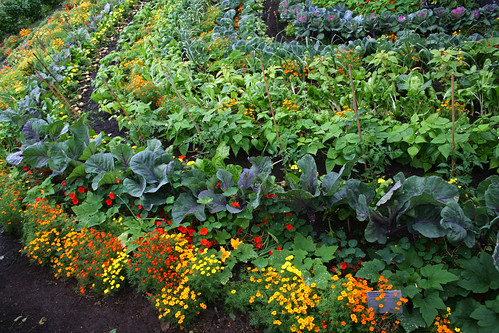Sustainable agriculture without GMO's

SUSTAINABLE AGRICULTURE WITHOUT GENETIC ENGINEERING
Lim Li Ching (1) Third World Network (2005)
http://www.biosafety-info.net/article.php?aid=506
[Sustainable agricultural practices, which include organic farming, offer many benefits to the environment, biodiversity, local livelihoods, and human health, are viable alternatives to genetic engineering.]
Genetically engineered (GE) crops were estimated to cover a global area of 81.0 million hectares, equivalent to 200 million acres, for 2004 (James, 2004). Only 17 countries in the world officially grew GE crops in 2004. Countries that were growing 50,000 hectares or more were, in order of hectarage, the United States, Argentina, Canada, Brazil, China, Paraguay, India, South Africa, Uruguay, Australia, Romania, Mexico, Spain and the Philippines.
The US remains the country with the greatest area planted to GE crops (47.6 million hectares or 59% of global total), followed by Argentina with 16.2 million hectares (20%), Canada with 5.4 million hectares (6%), Brazil with 5.0 million hectares (6%) and China with 3.7 million hectares (5%). While GE crops are still concentrated in a handful of countries, there has been an increasing push on many other countries to adopt GE crops. The rapid development and expansion of genetic engineering in agriculture would, however, carry a wide range of potential risks to the environment, health and socio-economic situations of farmers, indigenous peoples and local communities.
With the pressure to adopt GE crops, agriculture is thus currently facing a major choice - which technology to base the future of world agriculture on? The dominant model is based on industrial monoculture, high chemical inputs and increasingly, GE crops.
Yet, sustainable agriculture and organic farming are not only superior for the environment, but are also beneficial for productivity and farmers’ incomes. There are currently more than 26 million hectares of farmland under organic management worldwide, which is over two million hectares more than in 2004, and an increase of almost 10% (Willer, H. and Minou Yussefi 2005). In 2003, the market value of organic products worldwide reached USD 25 billion, reflecting an increase of 7-9%.
While organic farming excludes the use of genetically modified organisms (GMOs), there is still a danger of contamination by transgenes occurring, via gene flow, spillage during transport, seed saving and exchange, and co-mingling of bulk shipments. Thus, the risks posed by GE crops are also very real for organic farmers.
Etiquetas: Alternativas, Organic

<< Página Principal